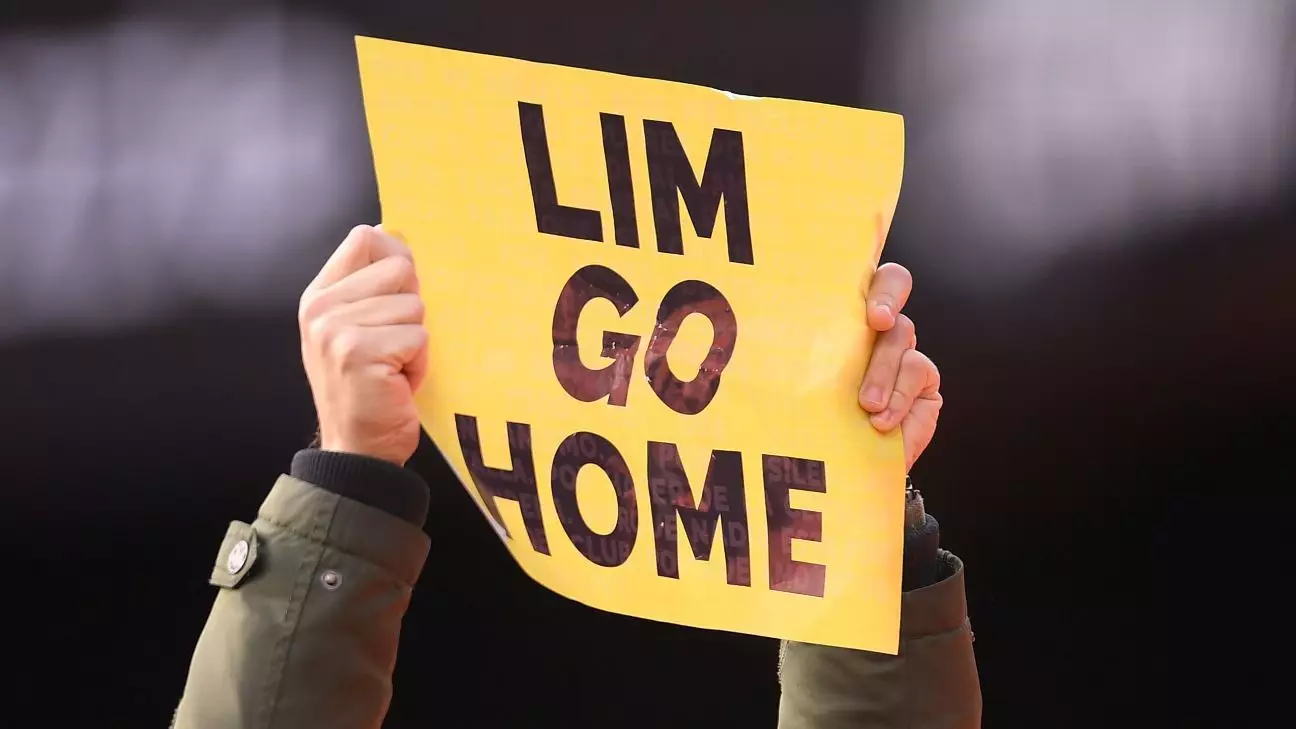The recent situation involving a Spanish couple in Singapore has shed light on the fine line between personal expression and the regulations governing public assemblies in the city-state. This incident intertwines sport, nationalism, and diplomatic intervention, exemplifying the complexities of managing dissent in highly controlled societies. As the couple protests against billionaire Peter Lim’s ownership of LaLiga team Valencia, their actions raise questions about the nature of protest, citizen rights, and state authority.
Peter Lim’s acquisition of Valencia CF in 2014 through his Hong Kong-based Meriton Holdings marked a significant shift for the financially struggling club. Over the years, Lim has faced intense criticism from fans, primarily due to high-profile player sales and management instability. The club’s current standing, languishing near the bottom of La Liga’s table, has amplified these grievances, positioning Lim as a contentious figure among passionate supporters. In this context, the protest by Dani Cuesta and Mireia Sáez, albeit outside Spain, highlights the emotional investment fans place in football clubs as symbols of their cultural identity.
Singapore is known for its stringent laws surrounding public gatherings. Under local regulations, any form of public assembly, including protests, requires prior authorization from the authorities. The consequences for participating without a permit can be severe, with fines of up to $3,000. The couple’s choice to display banners and stickers demanding Lim’s departure not only symbolized their frustration but also placed them at odds with a legal environment where such expressions are tightly monitored. This incident reflects the broader conversation about the balance between civil liberties and public order, particularly in jurisdictions that prioritize the latter.
The Diplomatic Response
This situation escalated to an international level, prompting Spain’s diplomatic apparatus to engage. The Spanish embassy’s involvement exemplifies how incidents abroad can invoke national interests and see foreign policy ripple effects. The couple’s family’s request for media discretion reveals the human element behind the headlines, emphasizing their hopes for a swift resolution. This scenario stresses the importance of diplomatic outreach when citizens become embroiled in local conflicts that have broader implications.
The incident involving Cuesta and Sáez serves as a powerful testament to the intersections of sports, politics, and personal freedoms. As fans express their dissatisfaction on global platforms, they illuminate not only their struggles with clubs in crisis but also the challenges of voicing dissent in monitored societies. This particular case raises essential questions: How should states handle demonstrations? What are the implications of such protests for both the protesters and the governing bodies? Ultimately, this incident invites a deeper reflection on the rights of individuals in both domestic and international spheres and underscores the perpetual tension between authority and freedom.

